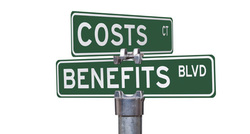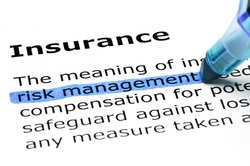
So, why do we do it? Well, I can think of at least couple reasons - 1) we like the challenges and 2) we are bored with what we do for a living! The other person's job is always that much more interesting. 3) To save a buck. But do we really save money or cost us more?
Managing money is not an exception, many people think they were born to make money in the stock market. They feel that they have this unnatural power that they can predict the future. They compare themselves to the legendary investor Warren Buffett because they read his commentaries. Their choice of researching tool? Google, who they believe has all the answers they are looking for.
After years of experience in the financial service industry and meeting thousands of people, I have summarized 5 types of people who often are not successful investing on their own.
Investor Type 1: I'm too busy for anyone and anything
This type of people have no time for whoever and whatever. Their life is so busy that they hardly have time to use the bathroom. Let's face it, between work and family, if you still have time for investment researches you are probably not spending enough time with your family or just slacking off at work.
Investing takes time to research for the right stock or type of investment products to invest in. Without researching how do you know where to invest? If you want to test out your luck I suggest you go to the local casino and bet all your money on red at the roulette table. If you are lucky you might have better chance to make more money there. And most importantly without spending so much time researching it because time is what you don't have!
Investor type 2: Not interested
Unlike most animals, humans are curious about numerous things. This is what keeps us continue to evolve. However, every human has his/her own interests in certain things and sometimes develops passions towards to them. But what happens to the things that we are just not that interested in? We simply don't do it!
This is not good when someone has no interest whatsoever in investing. Their tendency is usually “avoid and ignore”. This type of people tend to let nature decides for their faith. If you are not paying attention to your money it'll go to someone else who is. The secret to becoming financially independent is to make sure your money is growing faster than you are making it. The goal is to have your money out earn you as soon as possible.
Investor type 3: Too emotionally involved
Money has no feelings, people do. If you force your emotions upon to your money it will act just like you. The biggest mistakes people make when it comes to investing is buy-high and sell-low. Interesting enough that when you ask anyone they will tell you that the only way to make money in the stock market is to buy-low and sell-high. It's such a simple logic yet most people don't follow it!
People are frightened when the market is down, so they want out. And when the market is at its highest they want in. The professionals had figured this out long time ago and developed specific strategies around this so they can take advantage of the market(or really the other investors).
Investor type 4: Above age 60
If you are age 60 or above and still trying to play with the stock market with most of your money and without professional help, it's either because you are playing the catch-up game or no one has ever told you that you shouldn't be doing that.
Market will go down and it will come back. That's just how it always works. As long as you are patient and with professional guidance you will make money in the long term either big or small. A normal market cycle takes about 5-10 years. The worst can happen to you is when you need the money it's not there. Unless you are diversified in your overall portfolio so that you have backup money in case you need it you shouldn't take huge amount of risk. An experienced financial advisor should be able to help you spread out out your portfolios based on your short term, midterm, and long term goals. All money must not be treated the same. It should have different purpose of its own. Defining your goals is crucial when it comes to portfolio allocation.
Investor type 5: I have so much money
You would think when one has so much money he/she can afford to lose more than the regular Joe's. First of all, it's all relative. Typically wealthy people spend more, too. Their lifestyle is probably very different from the regular Joe's. They have bigger houses, more expensive cars, and better dog cares. The bottom line is, they have more bills to pay. In order to keep up with this lifestyle they have to make more. No one should think they can afford to lose more. Such careless mindset itself will cost you a lot of money.
Second of all, wealthy people understand how important they keep their money continue to grow. They didn't come with all these money for no reason. They have accumulated through out the years by working hard and smart. Many of them realize that their money didn't come easy. However, the problem with having so much money is to make sure the money is constantly working for them and not the other way around. This takes tremendous amount of energy, time, and creativity. So for them diversification is key. One can only invest in certain types of investments so much until risk becomes so concentrated. The last thing they want is to lose their valuable assets and have to adjust their wonderful lifestyle.
Thirdly, wealthy people didn't get rich on their own. They comprehend very well how to utilize smart people to leverage their time. You will find many of them have team of experts surround them, attorneys, CPAs, financial advisors. etc. they have access to information and knowledge that they can't get on their own. You don't ever see them changing their own oil, do you? They rather use their time for things that matter the most to them, such as family and things they love to do.
Money may not be everything but without it our lives will be very different. Make sure your money is growing safely and it's constantly working for you and not the other way around. Look at how much you have accumulated from your hard work, how can you be so careless? Remember, at some point you may not be able to work anymore even if you desire to. You must save, grow, protect, and enjoy your money! Now, get help from a trusted financial professional! You deserve it!










 RSS Feed
RSS Feed